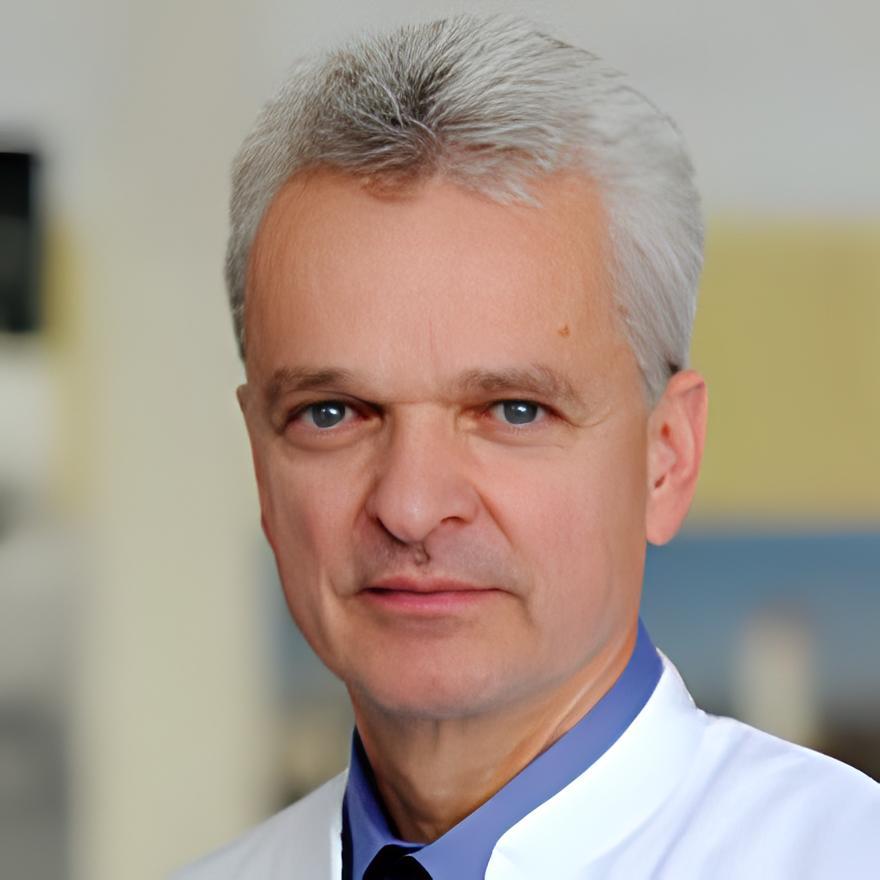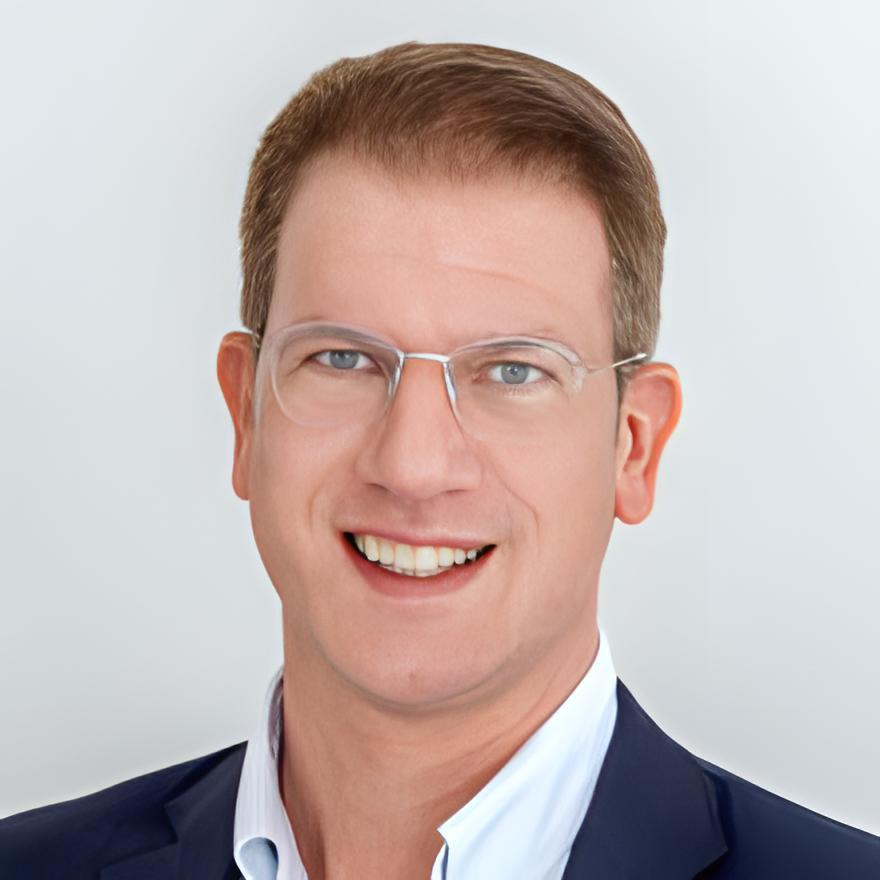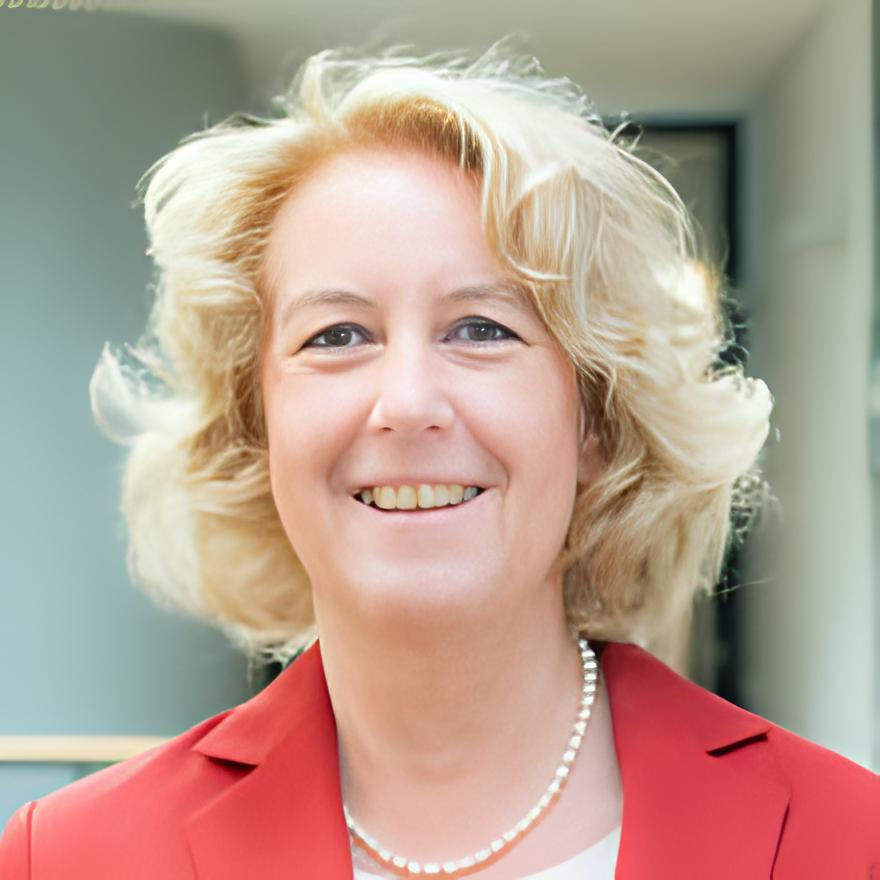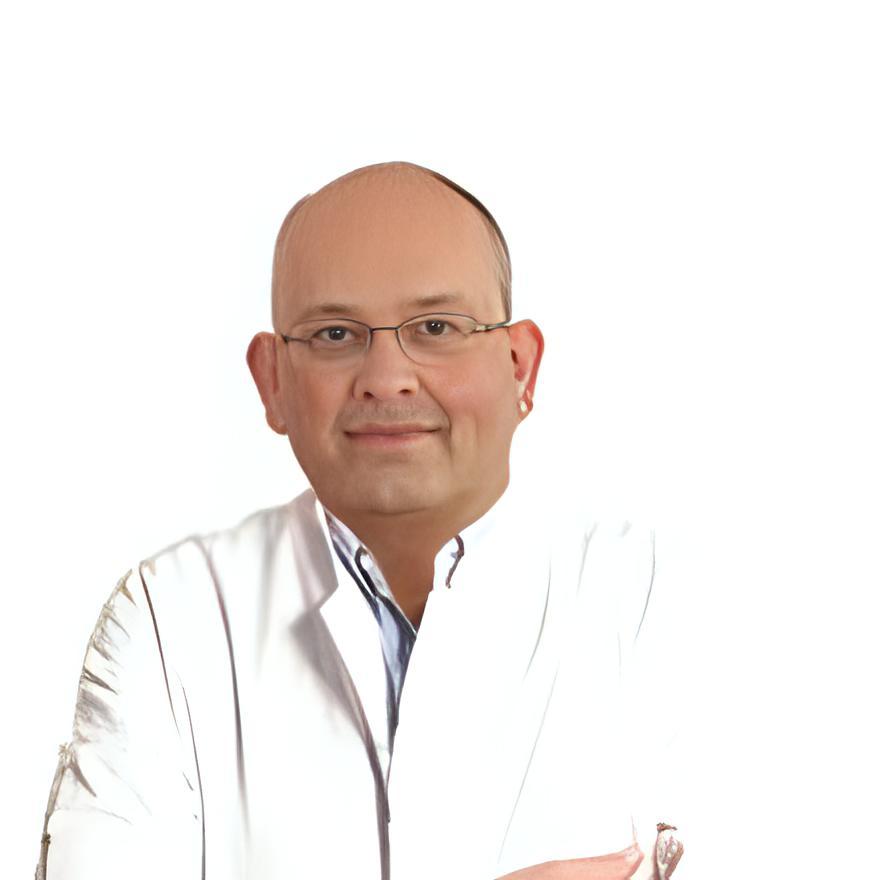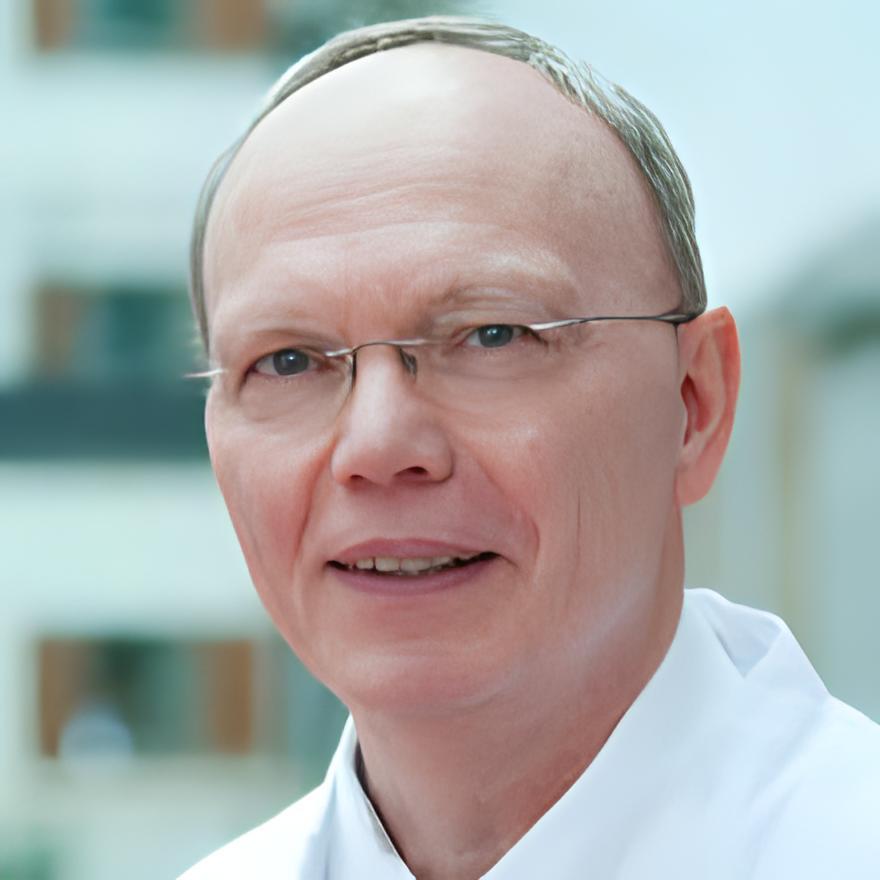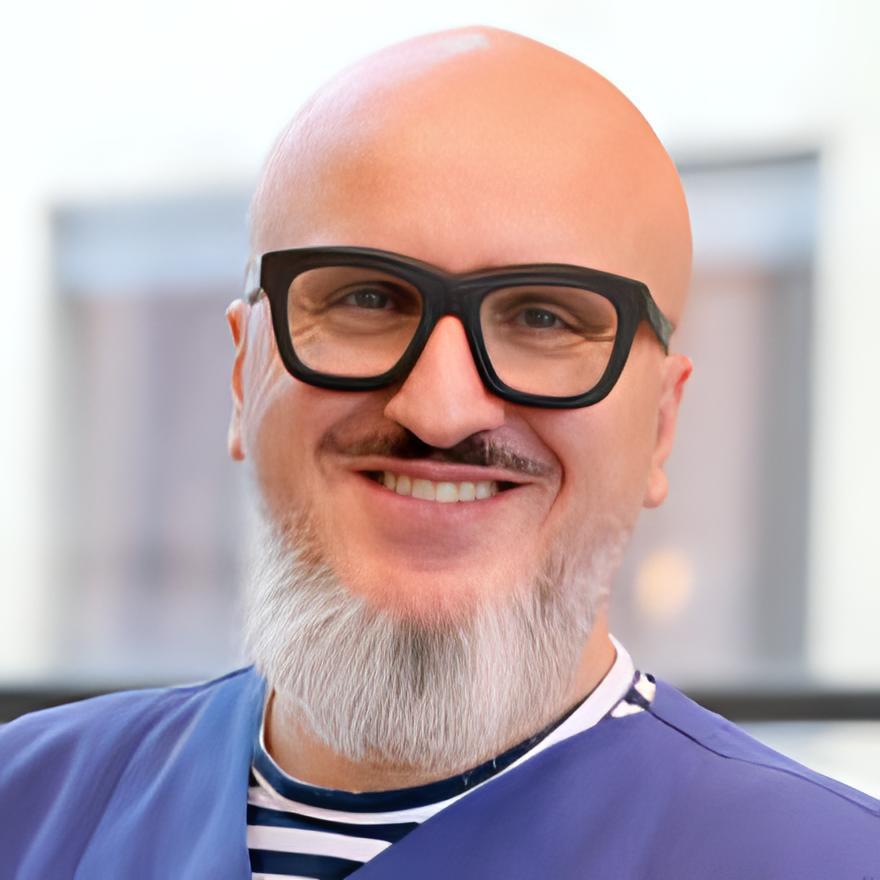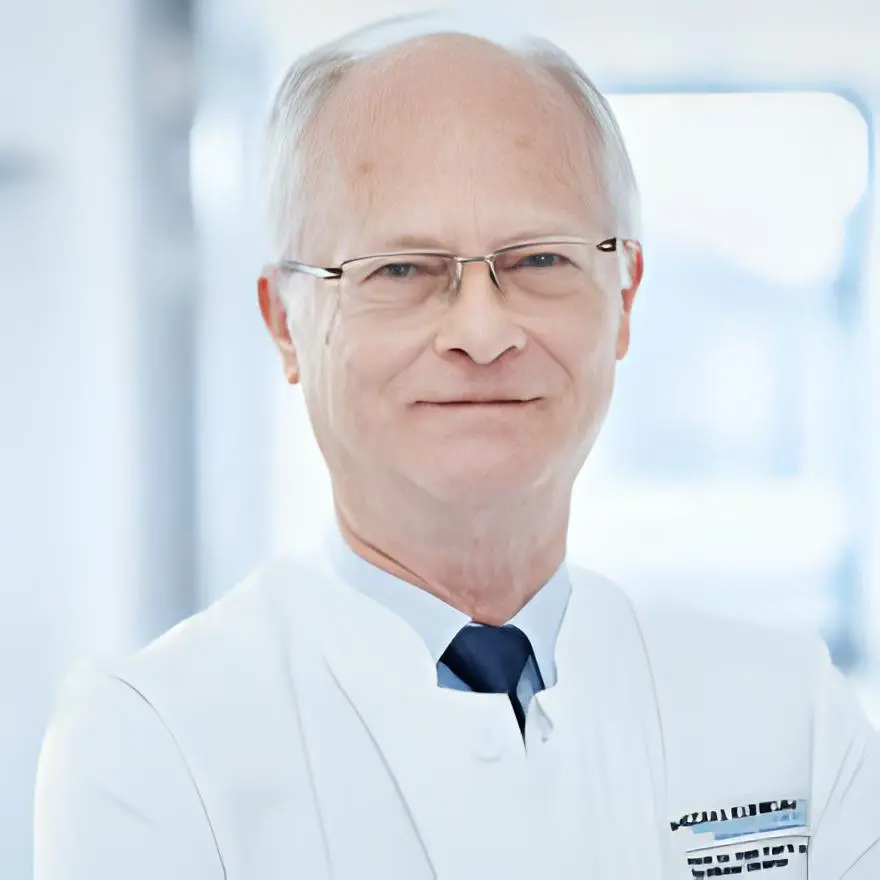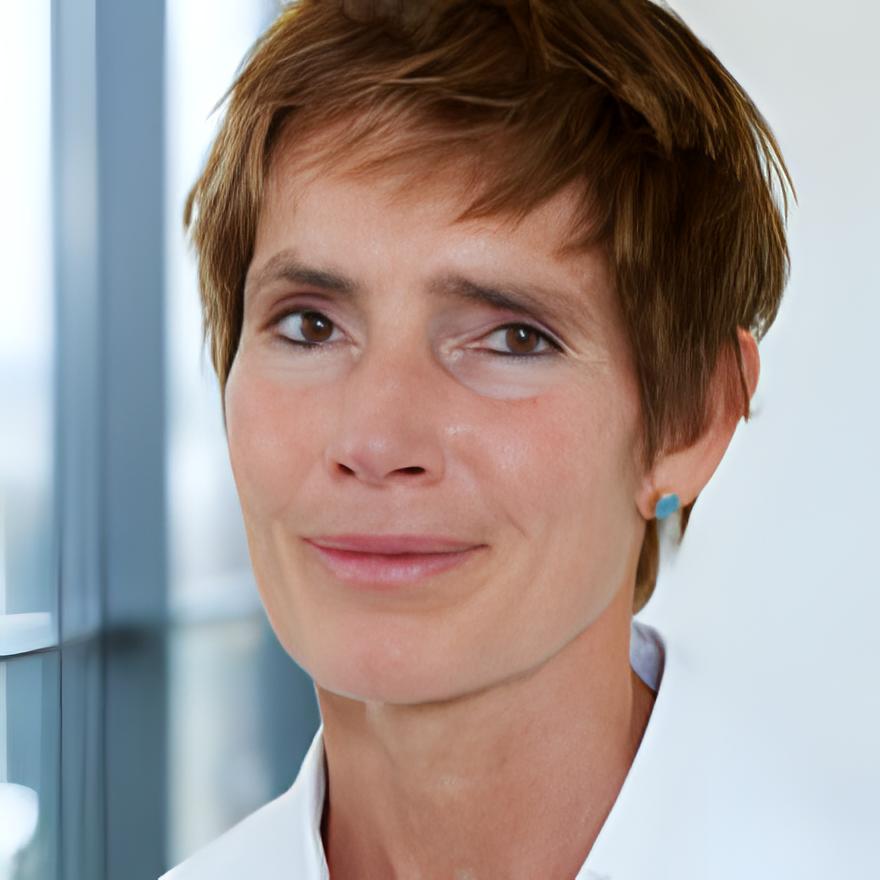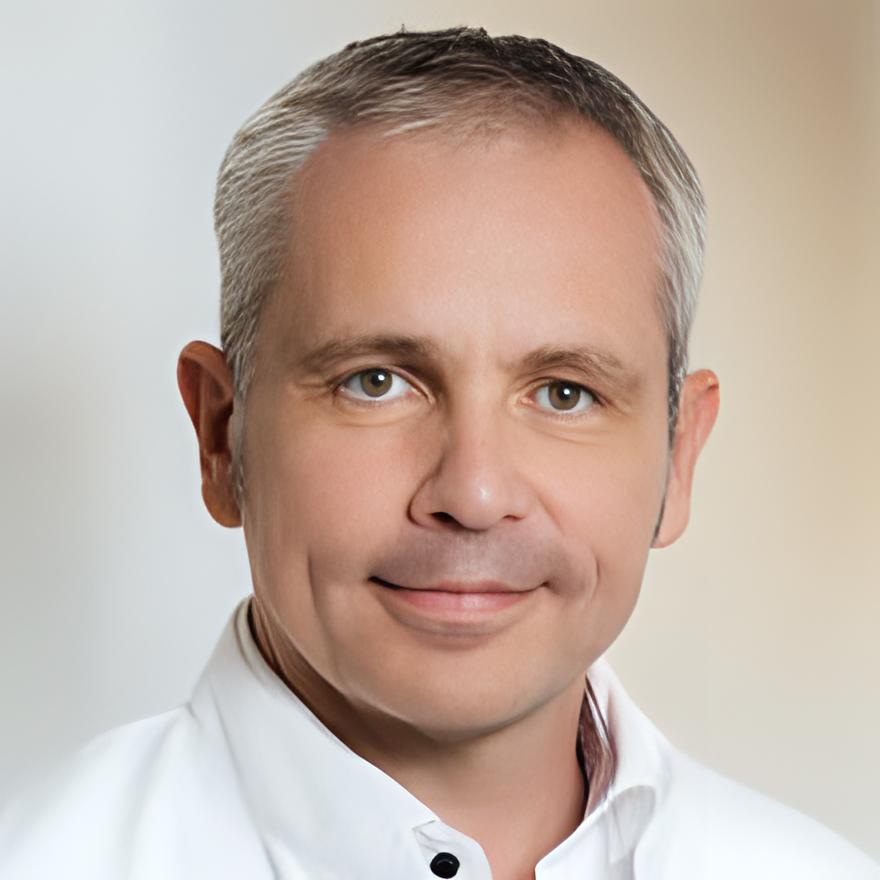Cancer Second Opinion in Germany
A cancer diagnosis often brings a very specific kind of pressure. Decisions need to be made quickly, the medical language is unfamiliar, and every option can feel high-stakes.[1] At the same time, oncological care has become more complex. Imaging, biopsy interpretation, staging, and genetic testing can all influence what happens next.
 In this setting, a cancer second opinion has become a common and reasonable step, not because someone has done something wrong, but because there is real value in checking the details before you commit to a major plan.[2]
In this setting, a cancer second opinion has become a common and reasonable step, not because someone has done something wrong, but because there is real value in checking the details before you commit to a major plan.[2]
Germany is frequently in demand for this kind of review because its oncology system is strongly structured around evidence-based medicine, certified care, and multidisciplinary decision-making.[3][4][5]
What Is an Online Oncology Second Opinion?
Patients must first understand what a distant opinion is and how it differs from a typical appointment with a local doctor. We will also explore the various types of this process and the data supporting the rationalization of these services.
Definition
 A cancer second opinion is an independent medical review of a patient’s existing cancer case by another qualified specialist or oncology team.[6] It does not restart the whole diagnostic process from zero. Instead, it reviews key medical information that drives decisions, such as biopsy findings, imaging results, the confirmed stage of disease, and the rationale for the proposed treatment plan.
A cancer second opinion is an independent medical review of a patient’s existing cancer case by another qualified specialist or oncology team.[6] It does not restart the whole diagnostic process from zero. Instead, it reviews key medical information that drives decisions, such as biopsy findings, imaging results, the confirmed stage of disease, and the rationale for the proposed treatment plan.
In practice, a second opinion on cancer diagnosis typically includes a structured review of medical records and test reports.[2][6] It may involve a histopathology review of biopsy samples, staging confirmation using the TNM classification, and, when relevant, molecular profiling to see whether specific targeted or immunotherapy options should be considered. In more complex cases, the findings are discussed at a multidisciplinary tumor board to ensure alignment among surgery, medical oncology, radiation oncology, radiology, and pathology.[7][8][9][10]
The outcome is a clear medical assessment that either supports the current plan or recommends changes. Sometimes the goal is simply to confirm the diagnosis and validate the next steps. In other situations, it helps patients explore therapies, avoid unnecessary treatment, or identify additional tests that can meaningfully change the strategy.[11][12]
What Data Say about Second Opinion
There is also a measurable reason why patients seek another view. In an extensive evaluation of a patient-initiated second-opinion program across multiple specialties, reviewers recommended changes to diagnosis in about 15% of cases, to treatment in about 37%, and to both in more than 10% of cases.[13]
In a study conducted at a certified university breast and gynecological cancer center in Germany (Erlangen University Hospital), researchers compared the original recommendation with the second opinion determined at an interdisciplinary tumor conference.[14] Among 164 patients, the initial opinion was not guideline-conforming in 34.8% of cases. After the cancer case review, the second opinion on cancer treatment optimized the recommendations in 56.7% of cases, including changes related to: diagnosis work-up (28.7%); surgery (15.9%); systemic therapy (30.5%); radiotherapy (8.5%).

At the same time, German programs also report that many first plans are confirmed, depending on who uses the service and the complexity of the cases. For example, an evaluation reported by Deutsches Ärzteblatt about second opinions at NCT Heidelberg states that in nearly 90% of cases, the first opinion or therapy was confirmed. The remaining 10% logically required some adjustment.[15]
Taken together, these international and German figures support the same core message as the global data: a cancer treatment second opinion is often reassuring but can also lead to meaningful adjustments. It can materially affect what tests are needed, how the disease is staged, or which therapy is most appropriate.
Online Formats
The process can differ between providers. There is no single, unified online system across Germany, so each hospital or specialist team sets its own workflow. We cover what a practical online cancer second opinion from Germany looks like.
Brief Opinion
A basic written opinion serves as an initial check, rather than a comprehensive medical assessment. You share a short case summary and a few key reports, and the specialist responds in writing with general guidance on whether the proposed direction looks reasonable and what a German clinic could typically offer for a case like yours.
It is not intended to provide a final indication or a detailed review of the treatment protocol. This kind of exchange is often informal and may be undocumented, handled through standard communication channels rather than a structured report, and is usually quick.

Basic assessment is often free, but the trade-off is that the level of detail may be insufficient for complex decisions.[17] It works best when you want a quick orientation, initial guidance, and to decide whether a deeper review and further communication are needed.
Written Case Review
Written oncological review is the standard in-depth remote format. A German oncologist or a clinical team performs a structured medical records review and provides a written medical opinion.[16][18][19] This is where more rigorous checks typically happen, such as aligning the case with guideline-based treatment, verifying staging (often using the TNM staging system), and identifying whether additional tests could change the strategy.[4][8]
Costs are clinic-dependent and reflect the scope of review, the specialty, and whether additional steps are required (e.g., pathology re-evaluation). Timing depends on the facility and the completeness of your documents, but it commonly ranges from several days to a few weeks.[16][17][20]
It's best when you need a clear, documented second opinion on the diagnosis and recommended therapy, and you want something you can rely on for further planning or to discuss with your local team.
Video Consult
 Video consultation adds a live remote consultation to the document review. The file still needs to be assessed first, and then the discussion focuses on your questions, trade-offs between options, and how the recommendation applies to your situation.[16][19] It usually costs more than a written assessment because it includes dedicated physician time and scheduling.[16][20]
Video consultation adds a live remote consultation to the document review. The file still needs to be assessed first, and then the discussion focuses on your questions, trade-offs between options, and how the recommendation applies to your situation.[16][19] It usually costs more than a written assessment because it includes dedicated physician time and scheduling.[16][20]
The quality can be uneven simply because not every German oncologist offers video-based second opinions in the same way, and the value depends heavily on preparation and the clarity of your records. Timing is typically slightly longer for a written review, since both require the same initial case review step.
This type of second medical opinion fits best if you want to ask questions directly, clarify uncertainties, and leave the call with a practical decision framework.
Tumor Board Review
Tumor board case assessment is the most comprehensive option, but also the most resource-intensive. Your case is reviewed by a multidisciplinary oncological board, where specialists evaluate the diagnosis, staging, and treatment strategy together.[10][17]
 This format can be particularly valuable when decisions involve several disciplines or when there is uncertainty about the optimal sequence of therapy. Because multiple doctors must be involved and the documentation must be complete, this is typically the most costly and time-consuming pathway.[10][16][20]
This format can be particularly valuable when decisions involve several disciplines or when there is uncertainty about the optimal sequence of therapy. Because multiple doctors must be involved and the documentation must be complete, this is typically the most costly and time-consuming pathway.[10][16][20]
It is the best way for patients with advanced cancer disease, complex cases, rare cancers, conflicting recommendations, or situations where you want the strongest possible consensus before starting or changing treatment.
Situations Where Second Opinions Help
A second opinion cancer review becomes most valuable when the stakes are high and the details matter. It is often the moment when patients move from uncertainty to clear next steps: confirm diagnosis, run a focused treatment protocol review, and validate treatment plan against up-to-date standards in Germany.
Many people start getting a second opinion on cancer when they feel the decision is rushed, the options are not fully explained, or the plan seems “one-size-fits-all”. Below, we list typical scenarios when patients refer to a distant service.
Rare Cancers
Rare tumors are a key reason to ask how to get a second opinion for rare cancers, as experience is concentrated in specialist centers. In a German analysis on sarcoma, concordance with the primary diagnosis was low outside expert review (28–37%, depending on setting). In contrast, expert review improved or confirmed the correct diagnosis in 73.1% of patients.[21] This is precisely where a second opinion can prevent the wrong pathway from forming in the first place.
Complex & Advanced Cases
Advanced cancer is rarely only about the tumor. Symptoms, prior treatments, and comorbidities can change what is realistic and safe. In a multicenter German quality project in certified oncology centers, 2,963 advanced cancer patients were screened, and 42.2% had results flagged as “positive,” meaning a substantial share needed further diagnostics or professional judgment beyond routine care.[22]
There are cases when specific therapies can be offered for your metastatic disease while not being locally available. In these situations, a distant review is often used to align the plan with goals, avoid overload, and still keep options open.
Uncertain Diagnosis
If pathology wording is cautious, or imaging and biopsy do not fully match, a second opinion is not just reassurance - it is risk control. As an example, in a German multicenter melanoma study, eight expert pathologists reached complete agreement in only 53.5% of cases (424/792), and the expert panel disagreed with local pathologists in 14.9% of cases.[23]
When people seek a second opinion here, the priority is to confirm the diagnosis before committing to a course that may be hard to reverse.
Multiple Treatment Paths
Sometimes the problem is not that the first plan is “wrong,” but that there are several reasonable paths. A second opinion helps you explore alternative treatments and understand trade-offs.
A 2025 survey of tumor boards in 314 certified colorectal cancer centers (in Germany, Austria, and Switzerland) showed how widely recommendations can differ when guidance is unclear: for one colon cancer scenario (UICC II pT4a), 28% preferred fluoropyrimidine alone, 39% preferred an oxaliplatin combination, and 33% preferred no adjuvant chemotherapy.[24] This is where a structured treatment protocol review can bring clarity and confidence.
Complex Surgery Decisions
Large cancer operations deserve extra scrutiny because they change function and quality of life. In Germany, second opinions are commonly associated with major surgery decisions, and prostatectomy stands out as an example. In a national survey, 57% of respondents said obtaining a second opinion would be (very) important for prostate surgery.[25] In practice, this is often about confirming whether surgery is truly needed now and whether the extent of surgery matches the risk level.
Explore Additional Options
Many patients seek a second opinion because they sense there may be other acceptable routes. In a patient-oriented second-opinion program in Germany, the second opinion led to a change in diagnosis or therapy in over 50% of cases.[26] Even when the final plan stays similar, this process can still validate treatment plan details: what should happen first, what can wait, and what is optional.
Personalized Therapy
Personalized oncology depends on selecting appropriate tests and using their results correctly. In a German precision oncology study, molecularly informed therapies were recommended in 71% of patients with completed molecular diagnostics, and implemented in 32%.[27]
This is why many second opinions include a targeted treatment protocol review to check whether biomarker testing, sequencing, or trial options could materially change the strategy.
Stage-4 Cancer Options
Metastatic cancer care is about choosing the strongest plan that still protects quality of life and preserves future choices. A second opinion at this stage is typically used not to confirm the diagnosis, but to ensure the plan remains the best fit for the current situation and that all available options are explored for the particular patient.
This is also where a second opinion on prostate cancer (as an example) is prevalent, because modern systemic options and sequencing decisions can be complex. German registry-based research has shown that the share of primary metastatic prostate cancer decreased from 19.6% (2013) to 12.0% (2021), while localized diagnoses increased, meaning metastatic cases today often reflect a more selected, high-risk group that benefits from careful strategy and sequencing.[28]
Why Cancer Second Opinion Online in Germany?
People look for an online route when they need expert input quickly, but cannot travel or want to make a decision before committing to treatment. An online cancer second opinion from Germany can work well because many providers are set up to review complex cases remotely, using structured documentation and specialist review rather than a short “general advice” call.
Overall Health System Strengths
Germany has a highly organized cancer care landscape, with a strong focus on evidence-based medicine and quality assurance. A recent OECD country profile describes a three-tier structure of certified cancer care and notes that, as of 2024, around 60% of annual incident cancer cases in Germany are treated in certified centres, including 15 certified comprehensive cancer centres that combine care with research and teaching.[29] Find out more about treatment in Germany, or read a detailed article showcasing the German healthcare system.
This matters for a second opinion from Germany because the same culture of documentation, guideline comparison, and standardized tracks supports remote case assessment.
Credentials & Standards
When you choose university cancer centers or certified centers, you are not only choosing reputation. You are selecting systems that are audited against defined quality criteria, including guideline adherence and case-volume targets. This is one reason international patients often prefer a structured review by a German oncologist or a certified team: the second opinion is more likely to be framed as a formal review of diagnosis, stage, and treatment logic, rather than just personal experience.
The same OECD report also highlights why certification is a practical signal. It notes that about 40% of cancer cases were still treated in general non-certified hospitals in 2024, and that reforms are intended to concentrate care based on quality and volume requirements.[29] For second opinions, this context reinforces why many patients actively seek review from certified settings.
Multidisciplinary Decision-Making
Cancer decisions often require more than one viewpoint, especially when surgery, radiation, and systemic therapy are all possible. In German certified structures, a multidisciplinary tumor board is a central tool for aligning these perspectives. A German comprehensive cancer center example (Center for Integrated Oncology Cologne) reports running 18 weekly interdisciplinary tumor boards, producing about 11,500 recommendations per year across 25 certified organ-specific cancer centers.[30]
This approach supports higher-quality remote second opinion on cancer by encouraging “whole-case” thinking. The discussion typically checks staging logic (often using TNM classification), pathology and imaging interpretation, and whether additional testing, such as molecular profiling, could change the recommended strategy.
Measurable Track Records
Germany also has measurable signals that second opinions are both common and consequential. At NCT Heidelberg, the cancer registry reports approximately 13,000–14,000 new cancer patients registered annually, and states that about 30% are demands for a second opinion, with a rising tendency.[31] That level of demand reflects how often patients want confirmation before acting.
In cancer-specific online models, a colorectal cancer pilot study of an online, structured second opinion based on an interdisciplinary tumor board reported that a complete electronic record and second opinion could be generated in 95% of cases. The second opinion confirmed the initial opinion in 40%, while 33% showed partial deviation and 27% significant deviation.[32]
In another German nationwide second-opinion network (testicular cancer), researchers analyzed 926 eligible cases out of 1,284 requests and found a discrepancy between first and second opinion in 39.5% of cases; discrepant second opinions led to less extensive treatment in 28.1% and more extensive treatment in 15.6%.[33]
Finally, outcomes are not only about “changes,” but about whether people can act on the advice. A 2025 analysis from a German comprehensive cancer center reported that almost 75% of patients adhered to second-opinion recommendations, with an additional 10% partially following them.[34]
Find the Right Provider
To get real value from a cancer second opinion, the provider should match your diagnosis, the decision you need to make, and the level of review you expect. In Germany, patients typically choose between major hospital-based oncology teams, specialized private cancer clinics, and selected individual specialists.
Best Hospitals for Second Opinion on Cancer in Germany
Hospital-based second opinions are often the right choice when you want a multidisciplinary view, access to subspecialty pathology and radiology, and the option for structured case review.[3][35][36] University hospitals and certified oncology centers are designed to handle complex cases, rare tumor types, and situations where staging confirmation or treatment protocol review is critical.[3][37][38] This is also the most common route when you want your case discussed in a multidisciplinary tumor council.
Selected Individual German Oncologists
An individual specialist can be a good fit when you want a focused expert review of a specific cancer type and a more direct line of communication. This option can work exceptionally well for validating a treatment plan or discussing alternatives when the overall case is straightforward, but the decision is sensitive. The key is to choose an oncologist whose daily practice closely matches your tumor type and treatment stage.
Note that an online cancer second opinion from Germany can require not just a general or medical oncologist. Many cases require a narrow specialist in a specific field, even in surgical or interventional radiology, which will be helpful for the type of treatment you need.
How the Second Opinion Process Works
A second opinion from Germany is usually built around a structured case review. Below, we have provided a step-by-step guide for patients on how to get a second opinion for cancer.

Gather Your Medical Records
Most providers start with a medical records review, so your documents matter as much as the conversation. Typical files include your pathology (histology) report, imaging reports (CT/MRI), the images themselves, surgery reports if you had an operation, and recent lab results. Patients should prepare DICOM files of their scans, and the remaining text reports must be in either English or German.[35]
If you are an international patient, the practical step is making sure the records are complete, readable, and consistently labeled. Missing pages or unclear dates are one of the most common reasons the review slows down.
Specialist Matching
Next, your case is matched to the right expert. A good match is not just “oncology,” but your exact situation: tumor type, stage, and the decision point you are facing. Use the Airomedical doctor section to select the right provider who offers a second medical opinion.
Some cases can be handled by one German oncologist with deep experience in that cancer type. Others need a broader team, especially when there are competing options (for example, surgery versus radiation, or different systemic therapy strategies).
If the question is complex or unusual, such as rare malignant conditions, providers may route the file to a university cancer center or a group, rather than a single reviewer.
Expert Review
This is the core of the process. The reviewer checks whether the diagnosis is solid (a true second opinion on cancer diagnosis), whether staging is consistent, and whether the proposed plan follows guideline-based treatment. Depending on the type of second opinion you choose, this step may vary and may include a video call if that makes sense.
In Germany, this often means a careful review of the treatment protocol, including whether the work-up is complete and whether additional tests (for example, molecular profiling) could change the plan. Doctors might request additional data during this process or advise additional tests if the provided reports do not fully answer the question.
Report Delivery
Most private services deliver a written medical opinion. It typically summarizes the key facts of your case, explains the reasoning in plain language, and states whether the reviewer agrees with the current approach or would change it. Good reports also make the next steps concrete, such as which results should be rechecked, which tests may be missing, and what options exist if you want to explore alternatives.
Timelines vary by provider and complexity. As a reference point for what a fully remote workflow can achieve, a German study on a second-opinion service reported that patients received their second opinion on average after 5 working days.[26] In private cross-border settings, turnaround times can still range from several days to a few weeks, especially when additional records are requested.
Follow-up Clarification
A report is often the start of the decision, not the end. Many patients schedule a remote consultation to clarify what the recommendation means for them, how strongly the reviewer prefers one option, and what trade-offs are involved. This follow-up is also where people pressure-test a plan with real-life constraints and align the second opinion with their local oncology team.
Used well, this step turns the review into action: you leave knowing what is confirmed, what is uncertain, and what you can do next to move forward with more confidence.
Pricing, Timelines & Availability in Germany
Appointment availability, timeframes, and costs for cancer second opinions in Germany vary by provider. Each clinic or specialist sets its own fees and processes based on case complexity and the completeness of records. Nevertheless, typical ranges are generally consistent across the country.
| Type | Timeframe | Cost | Availability |
|---|---|---|---|
| Brief Oncological Opinion | 2-7 days | Usually free | Available |
| Written Case Review | 5-14 days | From €700 | Available |
| Video Consultation | 7-21 days | From €1.200 | Limited |
| Tumor Board Review | From 14 days | From €2.700 | Waitlist |
FAQ
Will a second opinion offend my current oncologist?
Usually no. Second opinions are common in oncology; you can frame it as wanting confirmation and clarity before committing to treatment.
Can you review my pathology and imaging remotely?
Often yes, if you provide the pathology report and imaging reports; for deeper review, providers may request the actual DICOM files and/or pathology slides for re-reading.
How to get a second opinion for cancer treatment?
To get a second opinion for cancer treatment, you typically collect your key reports (pathology, imaging, discharge summaries, and current treatment plan) and submit them for review. With Airomedical, the process is usually handled as a coordinated process through the platform.
Where can I get my medical reports?
From the hospital where you were diagnosed or treated (medical records department) and from labs/radiology centers, you can request digital copies (PDF + DICOM on CD/link/portal).
How accurate is an online second opinion without an exam?
It can be beneficial for confirming diagnosis, staging, and treatment options based on records. Still, it cannot replace a physical exam or urgent in-person assessment when symptoms are changing.
Can a second opinion change my diagnosis or stage?
Yes, sometimes, when pathology is re-interpreted, imaging is re-read, or key biomarkers/molecular tests add new information.
What if my current plan differs from the German recommendation?
Ask both teams to explain the rationale and evidence, confirm that all records are complete, and focus on the decision points (goals of care, sequencing, risks, expected benefit).
What if I want more than one oncological opinion?
That’s reasonable for complex cases; request opinions from different subspecialists or centers (e.g., an academic tumor board plus a disease-specific expert) and compare recommendations based on evidence, feasibility where you live, and your own peace of mind.
References
- Reyna, V. F., Nelson, W. L., Han, P. K., & Pignone, M. P. (2015, February–March). Decision making and cancer. American Psychologist, 70(2), 105–118. Retrieved December 2025.
- American Cancer Society. (2025, July 31). Seeking a Second Opinion. American Cancer Society. Retrieved December 2025.
- German Cancer Society (Deutsche Krebsgesellschaft). German Cancer Society. German Cancer Society. Retrieved December 2025.
- German Guideline Program in Oncology (GGPO). German Guideline Program in Oncology (GGPO). German Guideline Program in Oncology. Retrieved November 2025.
- Hochschule Bonn-Rhein-Sieg, University of Applied Sciences. Medical Tourism. Hochschule Bonn-Rhein-Sieg, University of Applied Sciences. Retrieved November 2025.
- National Cancer Institute. Second opinion. NCI Dictionary of Cancer Terms. Retrieved December 2025.
- The University of Texas MD Anderson Cancer Center. Second Opinion Pathology. Retrieved December 2025.
- Union for International Cancer Control (UICC). (2025, July 3). TNM Classification of Malignant Tumours. Retrieved December 2025.
- National Cancer Institute. (2021, December 14). Biomarker testing for cancer treatment. Retrieved December 2025.
- National Cancer Institute. Tumor board review. NCI Dictionary of Cancer Terms. Retrieved December 2025.
- Memorial Sloan Kettering Cancer Center. (2025, December 18). MSK offers second opinions for cancer diagnosis: 9 things patients should know. Retrieved December 2025.
- MedlinePlus, U.S. National Library of Medicine. (2024, March 31). Your cancer diagnosis – Do you need a second opinion?. MedlinePlus Medical Encyclopedia. Retrieved December 2025.
- Meyer, A. N. D., Singh, H., & Graber, M. L. (2015, October). Evaluation of outcomes from a national patient-initiated second-opinion program. The American Journal of Medicine, 128(10), 1138.e25–1138.e33. Retrieved December 2025.
- Lux, M. P., Wasner, S., Meyer, J., Häberle, L., Hack, C. C., Jud, S., Hein, A., Wunderle, M., Emons, J., Gass, P., Fasching, P. A., Egloffstein, S., Krebs, J., Erim, Y., Beckmann, M. W., & Loehberg, C. R. (2021, June). Analysis of oncological second opinions in a certified university breast and gynecological cancer center regarding consensus between the first and second opinion and conformity with the guidelines. Breast Care, 16(3), 291–298. Retrieved December 2025.
- Deutsches Ärzteblatt, dpa. (2020, October 27). Nachfrage nach Zweitmeinungen bei Krebs in der Pandemie eingebrochen. Deutsches Ärzteblatt. Retrieved December 2025.
- Heidelberg University Hospital. General terms and conditions – Second medical opinion for international patients. Retrieved December 2025.
- National Center for Tumor Diseases (NCT/UCC) Dresden. Second opinion. Retrieved December 2025.
- University Medical Center Freiburg, International Medical Services. Written second opinion. Retrieved December 2025.
- University Medical Center Freiburg, International Medical Services & Business Development. (2017, September 18). Rules and prices for the second-opinion services: Teleradiology. Retrieved December 2025.
- Charité – Universitätsmedizin Berlin. Expert medical opinion. Retrieved December 2025.
- Lehnhardt, M., Daigeler, A., Hauser, J., Puls, A., Soimaru, C., Kuhnen, C., & Steinau, H. U. (2008, January 1). The value of expert second opinion in diagnosis of soft tissue sarcomas. Journal of Surgical Oncology, 97(1), 40–43. Retrieved December 2025.
- Braulke, F., Para, S., Alt-Epping, B., Tewes, M., Bäumer, M., Haberland, B., et al. (2023, May 5). Systematic symptom screening in cancer patients and its association with health-related quality of life and survival in oncology outpatient care. Journal of Cancer Research and Clinical Oncology, 149, 8829–8842. Retrieved December 2025.
- Müller, A. C., Hempel, L., Schröder, C., Wenzel, S., Kopp, J., & König, J., et al. (2025).Discordance, accuracy and reproducibility study of pathologists’ diagnosis of melanoma and melanocytic tumors. Nature Communications, 16, article 56160. Retrieved December 2025.
- Soff, J., Benz, S. R., Kowalski, C., Hansinger, J., Gerken, M., Maier, D., et al. (2025, October 7). Heterogeneity of treatment preferences in the absence of guideline recommendations – a case vignette study in colorectal cancer tumor boards in Germany, Austria and Switzerland. BMC Gastroenterology, 25, article 700. Retrieved December 2025.
- Kowalski, C., Steger, A. C., Richter, A., Schmutzler, R., Wesselmann, S., & Pfaff, H., et al. (2021, December 13). Attitude toward second opinions in Germany – a survey of the general population. BMC Health Services Research, 21, article 1254. Retrieved December 2025.
- Kowalski, C., Steger, A. C., Richter, A., Schmutzler, R., Wesselmann, S., & Pfaff, H., et al. (2020, October 17). Results of a patient-oriented second opinion program in Germany shows a high discrepancy between initial therapy recommendation and second opinion. BMC Health Services Research, 20, article 963. Retrieved December 2025.
- Kuehn, J. C., Metzger, P., Neidert, N., Matysiak, U., Gräßel, L., Philipp, U., et al. (2024, August 14). Comprehensive genetic profiling and molecularly guided treatment for patients with primary CNS tumors. npj Precision Oncology, 8, article 180. Retrieved December 2025.
- Worst, T. S., Surovtsova, I., Vogel, T., Zauser, M., Neuberger, M. C., Wessels, F., et al. (2024, February 5). Inzidenz, Behandlung und Prognose des Prostatakarzinoms in Baden-Württemberg: Analyse anhand von Krebsregisterdaten. Die Urologie, 63, 681–692. Retrieved December 2025.
- Organisation for Economic Co-operation and Development (OECD), & European Union. (2025, February). EU Country Cancer Profile: Germany 2025. Retrieved December 2025.
- Büttner, R., & Wolf, J. (2020, October 21). Multidisciplinary Tumor Boards: Integrating Best Patient Care and Education in Precision Medicine. IASLC Lung Cancer News (ILCN). Retrieved December 2025.
- National Center for Tumor Diseases (NCT) Heidelberg. NCT Cancer Registry. Retrieved December 2025.
- Berger, U., Beckenbauer, U. E., Rimkus, C., Bader, F. G., Seufferlein, T. T. W., & Maar, C. (2020, June). Online-based, qualified second opinion for patients with colorectal cancer – A pilot study of the Felix Burda Foundation in co-operation with the Network against Colorectal Cancer. Z Gastroenterologie, 58(6), 556–563. Retrieved December 2025.
- Zengerling, F., Hartmann, M., Heidenreich, A., Krege, S., Albers, P., Kliesch, S., … Schrader, M. (2014, June). German second-opinion network for testicular cancer: Sealing the leaky pipe between evidence and clinical practice. Oncology Reports, 31(6), 2477–2481. Retrieved December 2025.
- Schulmayer, C., Fasching, P. A., Beckmann, M. W., Häberle, L., Golcher, H., Goebell, P. J., Pöschke, P., & Emons, J. (2025, April 2). Improving quality of care for cancer patients through oncological second opinions in a Comprehensive Cancer Center: Adherence to second-opinion therapy recommendations. Journal of Cancer Research and Clinical Oncology, 151(4), 130. Retrieved December 2025.
- University Cancer Center Hamburg (UCC Hamburg), University Medical Center Hamburg-Eppendorf. Second opinion. Retrieved December 2025.
- Charité Comprehensive Cancer Center (CCCC), Charité – Universitätsmedizin Berlin. Second opinion for patients – expert medical consultation. Retrieved December 2025.
- Comprehensive Cancer Center München (CCCM), Klinikum rechts der Isar, Technische Universität München. Molekulares Tumorboard TUM – Zentrum für Personalisierte Medizin Onkologie. Retrieved December 2025.
- Centrum für Integrierte Onkologie (CIO) Aachen. Interdisziplinäre Tumorkonferenzen (Tumorboards). Retrieved December 2025.









